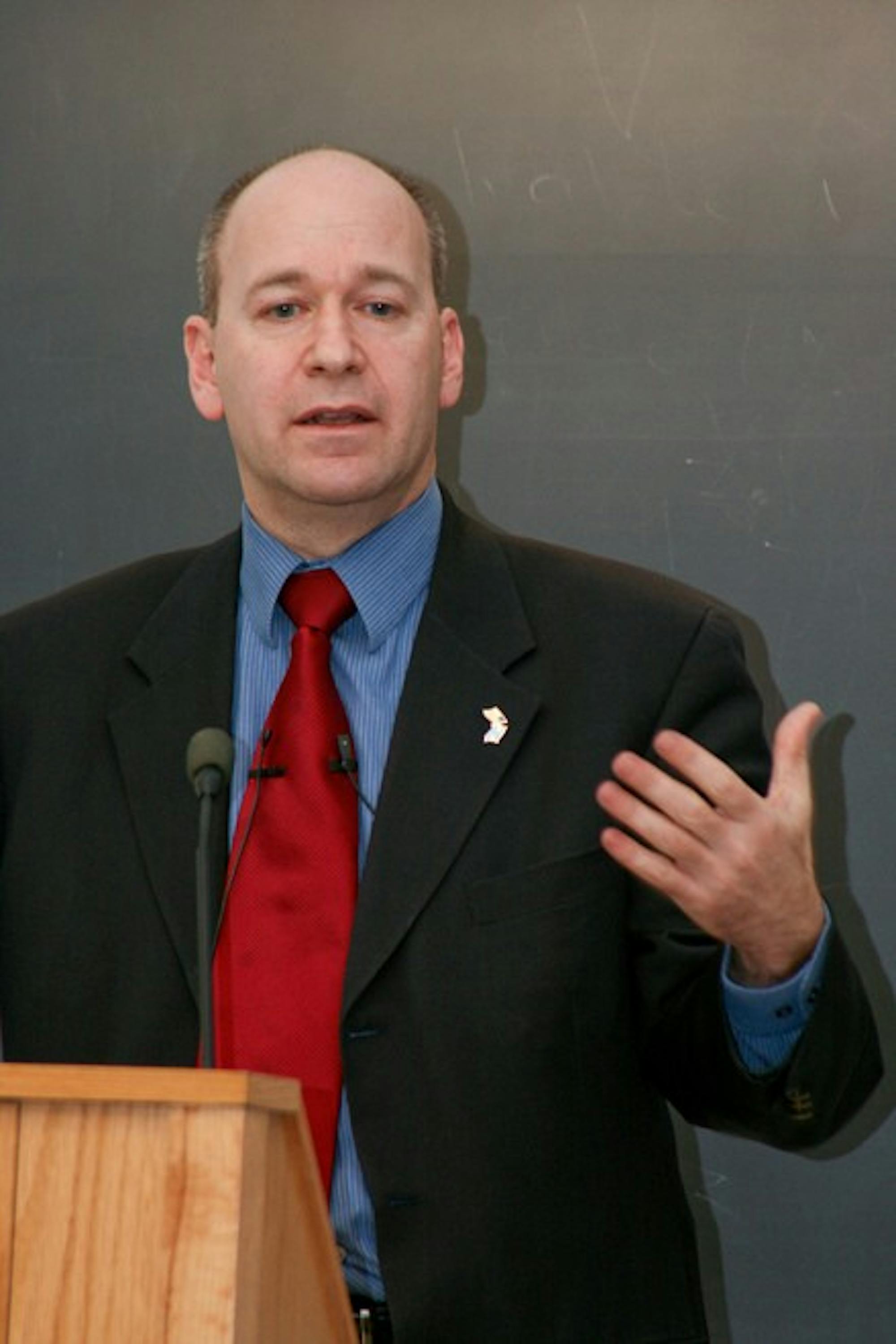The conflict, which lasted from December 2008 to January 2009, began when Hamas, which controls the Gaza Strip, violated a ceasefire by firing rockets into Israel, Tamir said.
"It wasn't Israel's choice," Tamir told an audience of about 60 people. "It was absolutely the choice of Hamas."
Tamir said he could only speculate as to why Hamas decided to break the ceasefire.
Hamas has been losing popularity because Palestinians in the Gaza Strip are beginning to realize that the group is hindering economic growth, Tamir said, even as the West Bank is experiencing economic expansion.
The Syrian and Iranian regimes that back Hamas also feel threatened by support for an Arab-Israeli settlement from moderate Arab nations and President Barack Obama's administration, he said.
The Israeli government knew that many lives would be lost in the conflict, particularly given Hamas' alleged use of civilians as shields, but decided to invade the Gaza Strip rather than expose all of Israel to rocket fire, Tamir said.
Throughout the conflict, the Israeli military was criticized for attacking civilian institutions, including schools and mosques, but Israeli forces did so because Hamas operated out of these locations, Tamir said.
Israel was also criticized after its military shelled a United Nations school in a refugee camp on Jan. 6, killing more than 40 Palestinian civilians.
"In the fog of war, when a unit is under attack, they don't always know what's around where they're firing," Tamir said in an interview with The Dartmouth following the speech.
Egypt is currently mediating negotiations for a ceasefire, Tamir said.
Israeli representatives are working for a sustainable ceasefire that will put an end to the smuggling of weapons and other goods into the Gaza Strip, he said. No permanent ceasefire is possible as long as the smuggling continues, Tamir said.
"Hamas wants to control what's coming in and out, but we won't allow it," Tamir said, adding that the European Union, the United States and Egypt all support the monitoring of imports into the Gaza Strip.
The Arab-Israeli conflict, however, is no longer the central issue in the Middle East, Tamir said, as people are now more concerned with the future of the region as a whole.
Leaders in Israel and moderate Arab states agree that the two-state proposal, which would create an independent Palestine in addition to the state of Israel, is the best solution to the conflict, Tamir said.
"For the first time in our history, we have the same goals as our neighbors," Tamir said, although he explained that small disagreements still exist.
The Iranian government, however, promotes Islamic fundamentalism and seeks to destroy Israel, Tamir said.
To help promote peace in the region, the Obama administration must prevent Iran from obtaining nuclear weapons and work to sever the Iran-Syria alliance, Tamir said.
Tamir's lecture, "Israel And The Middle East After the Crisis in Gaza," was the first of four speeches about the Gaza conflict sponsored by the Dickey Center for International Understanding, the Rockefeller Center and Dartmouth Hillel.
The series, which will span Winter and Spring terms, will include two lectures from the Israeli perspective and two from the Palestinian point of view, according to Kenneth Yalowitz, former United States ambassador and director of the Dickey Center.
The speech series coincides with the establishment of the Middle East Forum, a student-run discussion group, Yalowitz said, adding that recent events in the Gaza Strip present an opportunity to study the conflict from both points of view.
"Our business is international understanding," Yalowitz said. "The Middle East is not going away. It's going to be at the top of the list of foreign policy issues for [Obama]."
Tamir told the audience that he is optimistic about the prospects of peace in the region, although the situation may deteriorate before it improves.
"Yes, we can," Tamir said at the end of his speech, invoking one of Obama's campaign slogans.




